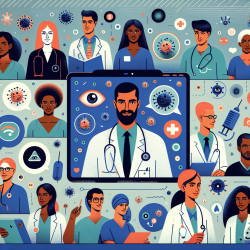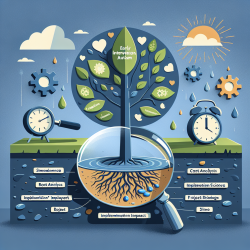Antimicrobial resistance (AMR) is a critical global health issue that requires immediate and concerted efforts from healthcare workers (HCWs) worldwide. The misuse and overuse of antibiotics have accelerated the development of resistant strains, threatening the effectiveness of existing treatments. A recent study, "Mapping educational opportunities for healthcare workers on antimicrobial resistance and stewardship around the world," highlights the importance of education in combating AMR.The study identified 94 educational initiatives focused on AMR and antimicrobial stewardship (AMS), spanning various formats such as courses, workshops, conferences, guidelines, and online resources. These programs are developed by a diverse array of organizations, including government bodies, professional societies, universities, non-profits, hospitals, and healthcare centers.
Key Findings and Recommendations
The research emphasizes several key findings and recommendations for HCWs looking to improve their skills and knowledge in AMR and AMS:
- Diverse Educational Formats: Educational initiatives include online courses, workshops, conferences, and public outreach materials. For instance, the "Clinical Antibiotic Stewardship for South Africa" course is a self-paced online program that covers antimicrobial stewardship, infection prevention, and control.
- Targeted Audiences: Most programs target physicians, but there are also initiatives for pharmacists, nurses, midwives, and healthcare students. The "Distance Learning Course in Antimicrobial Stewardship for Africa" is an excellent example of a program designed for multiple healthcare professional groups.
- Global Reach: Educational programs are available worldwide, with a significant number from North America and Europe. However, there are also valuable resources in Africa, Asia, and other regions, highlighting the global effort to address AMR.
- Collaborative Efforts: Governments, hospitals, and professional societies often collaborate to create and disseminate educational resources. This collaborative approach ensures a broad reach and high-quality content.
Opportunities for Practitioners
Practitioners can take several steps to enhance their knowledge and skills in AMR and AMS:
- Engage in Continuing Education: Participate in accredited courses and workshops that offer continuing medical education (CME) credits. For example, the "Antibiotic Pharmacology Webcasts" by the Cleveland Clinic provide valuable insights and CME credits.
- Utilize Online Resources: Access free online courses and materials. The "ReAct Toolbox" is a comprehensive resource website that offers information on AMR and AMS, suitable for both low- and high-income countries.
- Collaborate and Share Knowledge: Join professional societies and networks that focus on AMR and AMS. These platforms facilitate knowledge sharing and provide access to the latest research and guidelines.
- Advocate for Improved Training: Encourage institutions to incorporate AMR and AMS training into pre-service education and recognize these courses as part of continuing education requirements.
Conclusion
By leveraging the educational opportunities identified in the study, healthcare practitioners can play a crucial role in combating antimicrobial resistance. Continuous learning and collaboration are essential to ensure that HCWs are well-equipped to tackle this global health challenge.To read the original research paper, please follow this link:
Mapping educational opportunities for healthcare workers on antimicrobial resistance and stewardship around the world.










